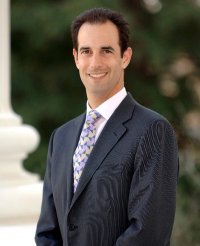What did the Olympic Trials Marathon Tell Us About the Resurgence of American Marathon Running?
By Lloyd Levine, Special to the SRN
(Editor’s Note: This is a follow-up to two recent, data filled articles that Lloyd Levine wrote on the status of American marathon running. You can find them here.)
The Olympic Trials have come and gone, and on the Men’s side we had what is being touted as a “record breaking” race. Unfortunately, the records that were broken were soft and old. The race was interesting and exciting, but rather than illustrate a resurgence in U.S. running, it illustrated how far behind the rest of the world the United States really is.
(A personal note: I do not mean to be negative, just realistic. I am a fan of running. I love running and watching races. I love Kenyan runners, Ethiopian runners, and U.S. Runners, as well as runners from many other countries. I like good races, fast races, and good stories. I would love to see the U.S. be competitive with the rest of the best runners in the world. I am not anti-American runner; I am pro-realism.)
Prior to the Olympic Trials on Saturday, since the year 2000, only 6 different Americans have run 2:10:00 or faster for the marathon. At the Trials on Saturday four American runners broke 2:10:00, the most ever in one day! (The previous best was 3 runners at Boston in…1983!)
And yet, the first sentence of this paragraph is still true; only six different Americans have run 2:10:00 or faster since 2000. The top four finishers at the Trials on Sunday had already all run 2:10 or faster in their careers. Additionally, much was made of the fact that two of the top four runners set personal best times set on Saturday with Meb Keflezighi lowering his time from 2:09:13 to 2:09:08. Dathan Ritzenhein lowered his time from 2:10:00 to 2:09:55 and there was a good bit of discussion about how impressive it was that Dathan ran a PR and didn’t make the Olympic team, and that his time was the fastest non-qualifying time ever.
A dose of reality.
In 2011 alone (not counting the freakishly fast Boston) at least 47 different Kenyans ran 2:10:00 or faster.
Another factor working against the “resurgence” claim is age. While successful marathoners (not named Haile) are getting younger and younger, two of the top four at the Trials were over age 30. Meb is 36, and third place finisher Abdi Abdirahman is 33. And its not exactly like they were closely followed across the line by a bunch of early to mid 20s runners. The fifth place runner finished in 2:11:06, nearly 2 minutes behind the winner and well over a minute behind fourth place. While that time may sound fast to the average runner (Ok, it is still pretty fast), on the world scene, 2:11:00 doesn’t get it done anymore. Heck, 2:11:06 would only have been good enough to finish as fifth American at Boston in 1983, or third American at New York that same year. And that brings up the final counter point to the “resurgence” claims: lack of depth.
Outside of the top four, going down to 30th place only eight of the 26 runners are 30 or older. But the times are 2:11:06 for fifth place, all the way down to 2:16:40 for 30th place. Only eight runners total broke 2:12:00. And remember, none of these runners have a PR under 2:10:00, so its not like they had a bad day. (Fifth Place runner Brett Gotcher has a PR of 2:10:36, which is the best among “the rest of the pack”.)
Yes, the running times in the United States have gotten better in the last 4 or 5 years, far better than they were a decade ago. But to hold up the results of the Olympic Trials Marathon as proof of a “resurgence” in U.S. running flies directly in the face of the evidence.
Improvement? Yes. Resurgence? Not even close.

